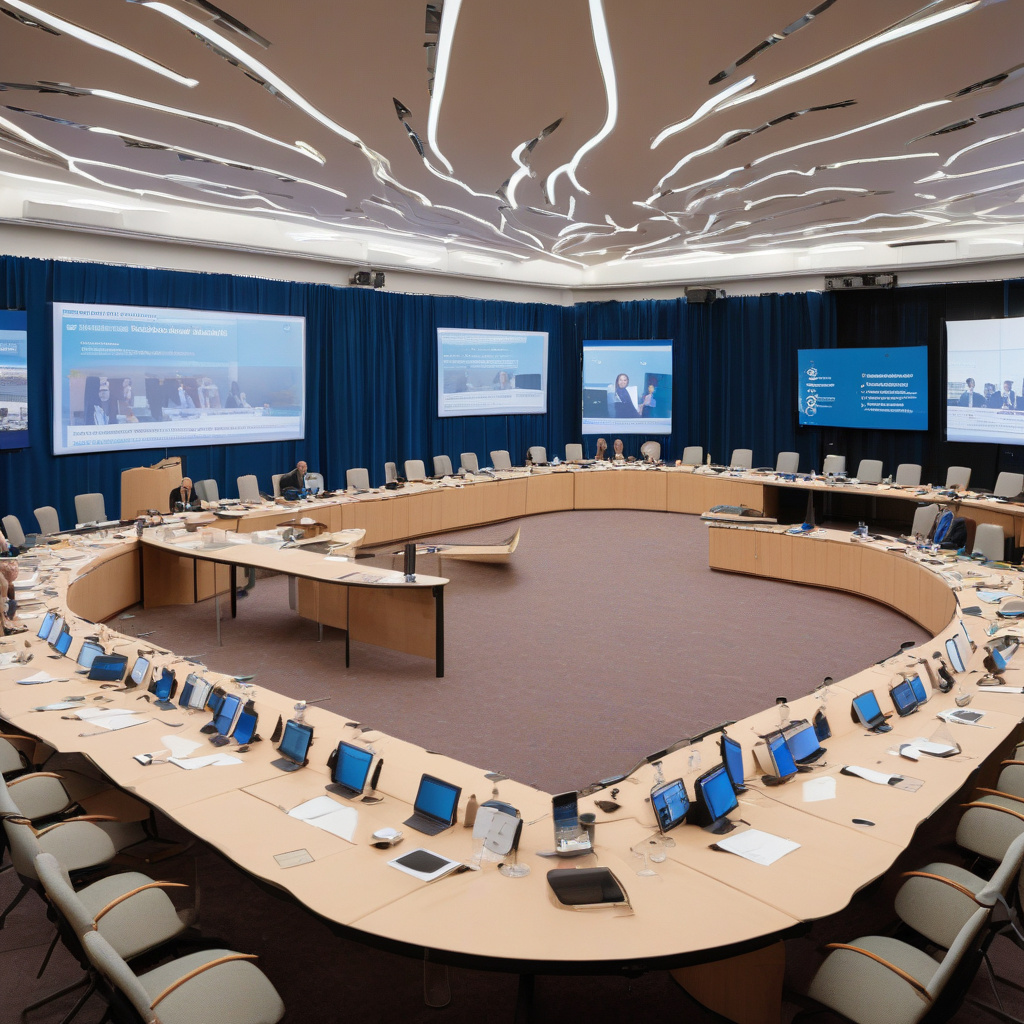Council of Europe Leads Digital Governance Dialogue at SEEDIG 2025 in Athens
Experts and policymakers recently convened in the historic city of Athens for the South Eastern European Dialogue on Internet Governance (SEEDIG) 2025. The focus of this year’s conference was on navigating the complex landscape of digital governance, with a particular emphasis on how Europe can uphold democratic values and human rights in the face of rapid technological advancements.
In an era where the digital realm plays an increasingly pivotal role in our daily lives, discussions at SEEDIG 2025 centered around the pressing need for robust governance frameworks that can effectively balance innovation with accountability. One of the key voices driving this dialogue was the Council of Europe, an international organization comprising 47 member states that is dedicated to upholding human rights, democracy, and the rule of law.
As Europe finds itself at a critical juncture, grappling with issues such as online disinformation, data privacy, and the regulation of emerging technologies like artificial intelligence, the Council of Europe has emerged as a leading authority in shaping policies that strike at the heart of these challenges. With its wealth of expertise in human rights law and its commitment to promoting a free and open internet, the Council has been at the forefront of efforts to ensure that digital transformation does not come at the expense of fundamental rights.
At SEEDIG 2025, representatives from the Council of Europe spearheaded discussions on a wide range of topics, including the need for enhanced transparency and accountability in algorithmic decision-making, the importance of safeguarding online freedom of expression, and the urgency of combatting cyber threats in an increasingly interconnected world. By fostering a multi-stakeholder dialogue that brought together government officials, civil society actors, technologists, and academics, the Council of Europe facilitated a nuanced exchange of ideas that underscored the complexity of the digital governance landscape.
One of the key takeaways from SEEDIG 2025 was the recognition that effective digital governance requires a coordinated and inclusive approach that transcends national borders. In an age where the internet knows no boundaries, regulatory frameworks must be agile enough to adapt to rapidly evolving technological trends while upholding the core principles of democracy and human rights. The Council of Europe’s advocacy for a human-centric approach to digital governance resonated strongly with participants, who emphasized the need for ethical considerations to underpin all facets of technological development.
Looking ahead, as Europe continues to navigate the ever-changing terrain of digital transformation, the insights gleaned from forums like SEEDIG 2025 will be invaluable in shaping policies that are not only forward-thinking but also grounded in respect for the rule of law and democratic values. By fostering a culture of collaboration and knowledge-sharing, the Council of Europe is paving the way for a digital future that is not only innovative but also inclusive and rights-respecting.
In conclusion, the Council of Europe’s leadership in advancing the digital governance dialogue at SEEDIG 2025 serves as a testament to the organization’s unwavering commitment to promoting a digital landscape that prioritizes the well-being and rights of all individuals. As we stand on the cusp of a new era defined by technological progress, initiatives like SEEDIG 2025 remind us of the importance of collective action in shaping a future where innovation and human rights go hand in hand.
Council of Europe, SEEDIG 2025, Digital Governance, Democracy, Human Rights











